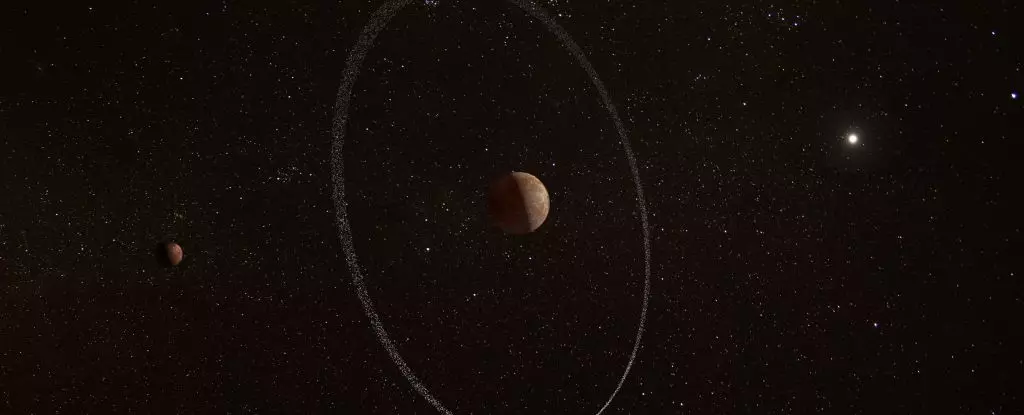The Solar System is home to a variety of moons with unique characteristics. Some are hot, some are cold, some have liquid, and some are dusty. However, despite the diversity of moons in our cosmic neighborhood, there is one glaring absence – ringed moons. While half of the planets in the Solar System boast rings of dust and ice, not a single moon has been discovered with a ring orbiting it.
Astrophysicist Mario Sucerquia and his team at the Adolfo Ibáñez University in Chile were intrigued by this anomaly. If giant planets and other celestial bodies in the Solar System could have rings, why don’t moons have them? This question led them to explore whether there are underlying reasons preventing the formation or long-term stability of rings around moons.
Using N-body simulations, Sucerquia and his colleagues investigated various scenarios to understand why moon rings are notably absent in the Solar System. They considered factors such as the gravitational influence of the moon, its host planet, and other moons in the vicinity. Surprisingly, they found that many moon-ring structures were stable, even in complex gravitational environments with multiple moons and planets.
Some features on Solar System moons hint at the existence of rings in the past. Debris orbiting Saturn’s moon Rhea and the equatorial ridge on Saturn’s moon Iapetus suggest that these moons may have once had ring systems that have since dissipated. Radiation pressure from the Sun, magnetic fields, internal heating, and other factors likely contributed to the loss of these moon rings over time.
The researchers speculate that perhaps humanity missed witnessing moon rings in the Solar System because they were no longer present when we began observing the cosmos. Just as we can only see certain celestial events when we are in the right place at the right time, the absence of moon rings could be attributed to a stroke of cosmic luck. Further studies involving additional parameters such as radiation pressure and magnetic fields may shed more light on this intriguing mystery.
As researchers continue to investigate the absence of moon rings in the Solar System, they are also expanding their search to alien worlds orbiting distant stars. By studying the moons of these exoplanets, they hope to uncover ringed moons that may offer new insights into the formation and stability of lunar ring systems. Contemplating the potential mythology and stories that may arise from inhabitants of worlds with ringed moons, Sucerquia wonders how different human culture and history might have been if our own Moon had rings.
The mystery of the missing moon rings in the Solar System remains unsolved but continues to intrigue and inspire astronomers to explore new frontiers in the search for cosmic wonders.


Leave a Reply